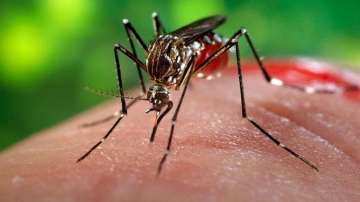In what can be a breakthrough in combating chikungunya, one of India's premier institutes, the Indian Institute of Technology (IIT)-Roorkee has discovered anti-viral properties of a drug piperazine which can help in fighting the mosquito-borne disease.
Medicine piperazine offers a new perspective for therapeutic intervention, thereby inhibiting the spread of virus, say researchers.Currently, there is no vaccine or anti-viral drug available in the market for the cure of chikungunya. The treatment has been focussed on relieving the symptoms associated with the virus infection. The researchers spoke of the potential of piperazine as a pharmacotherapeutic agent and how binding these molecules to the hydrophobic pocket of capsid protein, present in the Chikungunya virus, offers a new perspective for therapeutic intervention, thereby inhibiting the spread of the virus.
Piperazine is commonly used in deworming treatments against roundworm and pinworm. "Developing a new antiviral drug molecule can take over a decade and that is the reason why we are looking at repositioning existing approved drugs and testing these to see if they can inhibit or kill pathogenic viruses," said Shailly Tomar from the Department of Biotechnology at IIT-Roorkee. Research has shown that piperazine, which is available in the market, is successful in curbing the spread and replication of the chikungunya virus in a lab setting.
"We are currently testing the molecule on animals and hope to take this to clinical trials soon," said Tomar. Chikungunya is a viral disease transmitted to humans by infected mosquitoes. It causes fever and severe joint pain. Other symptoms include muscle pain, headache, nausea, fatigue and rash.The researchers said they found that piperazine would bind itself well with the hydrophobic pocket on the alphavirus capsid protein. "This pocket is key to the replication of the virus and its spread inside a host. This inhibition of this pocket prevents budding and spread of the virus and can help in treating the virus effectively using existing drugs," said they said.
Every year, various regions of country witness outbreaks of chikungunya during monsoon. Hospitals get flooded with patients soon after the onset of rainy season. Till now, Delhi has seen almost 500 cases of chikungunya.
(With IANS inputs)

